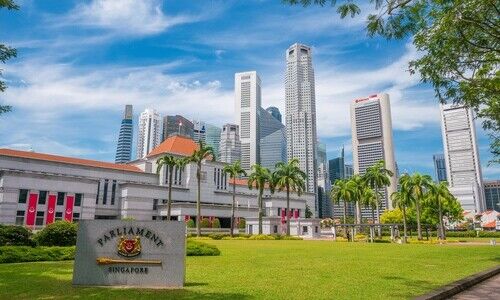Singapore’s Family Office Incentives Under Official Scrutiny
A member of parliament asks pointed questions related to hiring requirements, asset-booking, and tax benefits. finews.asia does a first take.
The city-state provides ample incentives to attract family offices from around the world. As a result, it is now the top choice for wealthy investors in the region, a development that has not gone unnoticed in Hong Kong government and financial circles, as finews.asia previously reported.
Still, that doesn’t mean that the Singaporean government isn’t free of scrutiny, as a number of probing questions in the city-state’s parliament on Tuesday subsequently published to the MAS website indicates.
During the sitting, city-state MP Yip Hon Weng asked whether the government was considering raising hiring requirements for family offices beyond two investment professionals.
Indirect Answer
Alvin Tan, a government minister speaking on behalf of the MAS, didn’t appear to respond to the question directly, saying that single-family offices usually started with small teams of investment professionals:
«Hence the more meaningful way to create local jobs is through their positive spillover effects in creating demand for ancillary services like legal, custody and tax services, and fund administration,» Tan said.
He did go on to say, however, that the government had raised the minimum criteria for family offices last April by increasing hiring requirements and introducing a new measure whereby family offices needed to invest at least 10 percent or S$10 million in assets in local investments.
Other than that, he maintained that government agencies were developing ways to help family offices finance enterprises, make ESG investments, as well as engage in other philanthropic activities.
Asset Booking
Weng also asked how Tan’s ministry ensured that family office financial assets were booked, based, or anchored, in the city-state.
Here Tan countered that the government’s approach to incentives was such that any funds set up by family offices would not be taxed on income that was derived from investments managed in the city-state.
«Without such certainty, funds of a single-family office may be taxed in Singapore in addition to the tax that the family (as an investor) may be subject to. This would make it unattractive for single-family offices to set up and invest in funds in Singapore,» Tan told Parliament.
Tax Benefits
Weng had a third question related to whether the government had done a cost-benefit analysis of the tax benefits provided to family offices. Tan's answer to this was to say that family office applicants needed to demonstrate a contribution to Singapore’s economy to qualify for the incentives.
As part of that, they needed to meet minimums for spending, assets under management, and when creating professional investment jobs.
Post-Covid Surge
As finews.asia has reported extensively, many wealthy Chinese are looking to move abroad after the extended Covid-19 lockdowns in places like Shenzhen and Shanghai, where many of the most successful entrepreneurs and financial industry exponents are based.
It is likely they will continue to choose locations and countries that have a close affinity to their own, such as Singapore. But that is also likely to attract increased controversy, and further parliamentary scrutiny, should societal views become increasingly prevalent that they are reaping too many benefits to the detriment of the local populace.
Because at the end of the day, there is no such thing as a completely free lunch, even for the very wealthy.




























